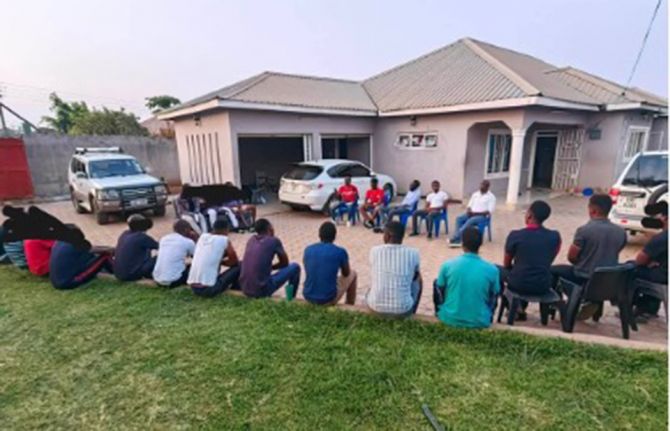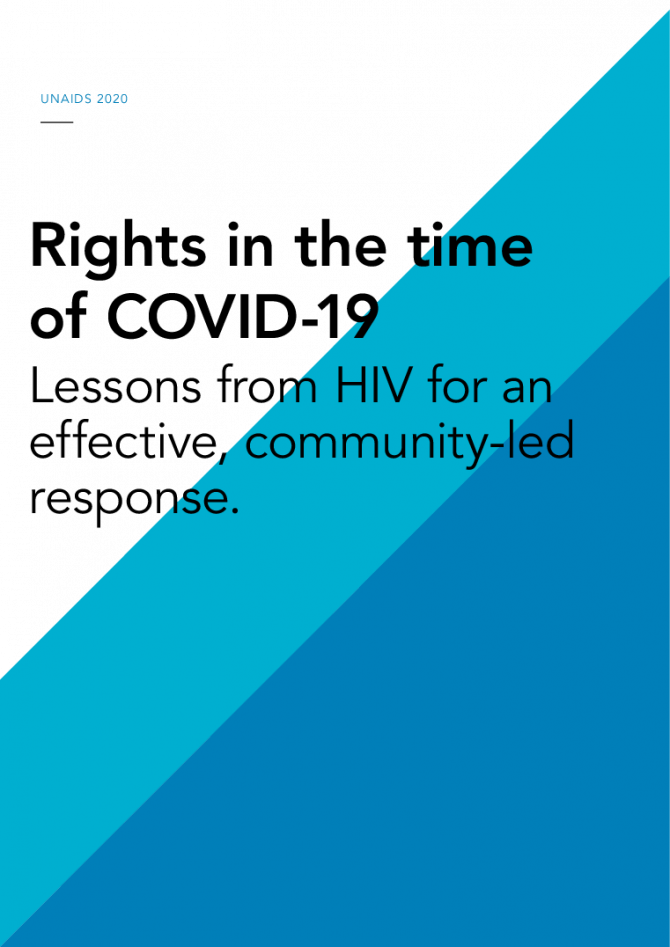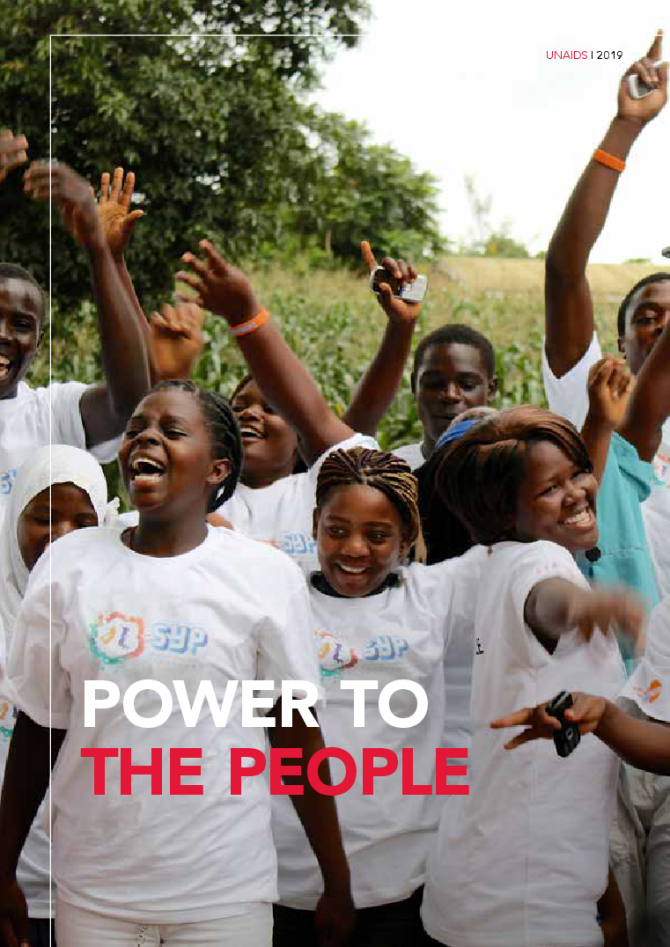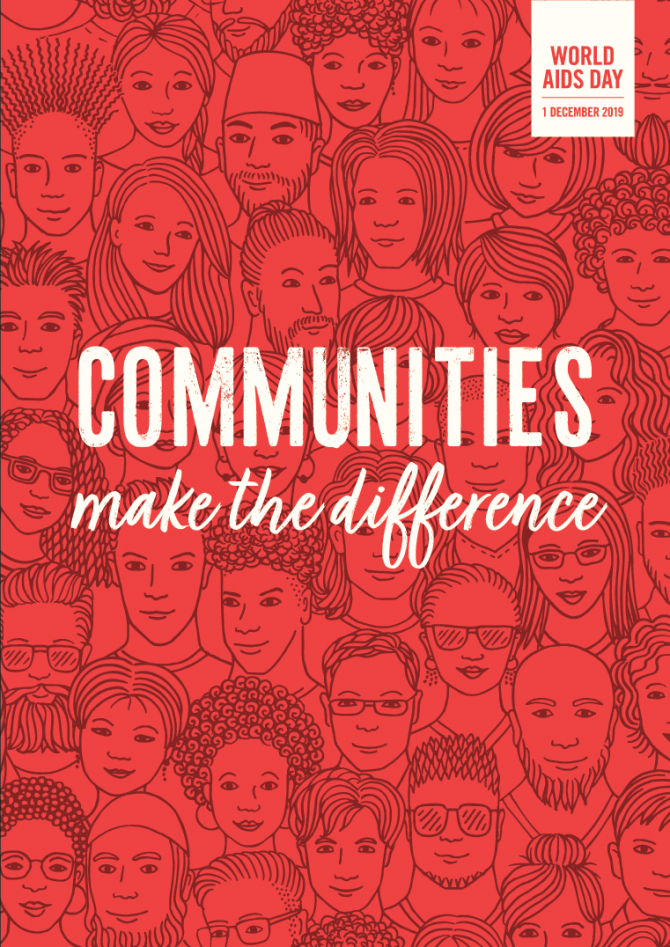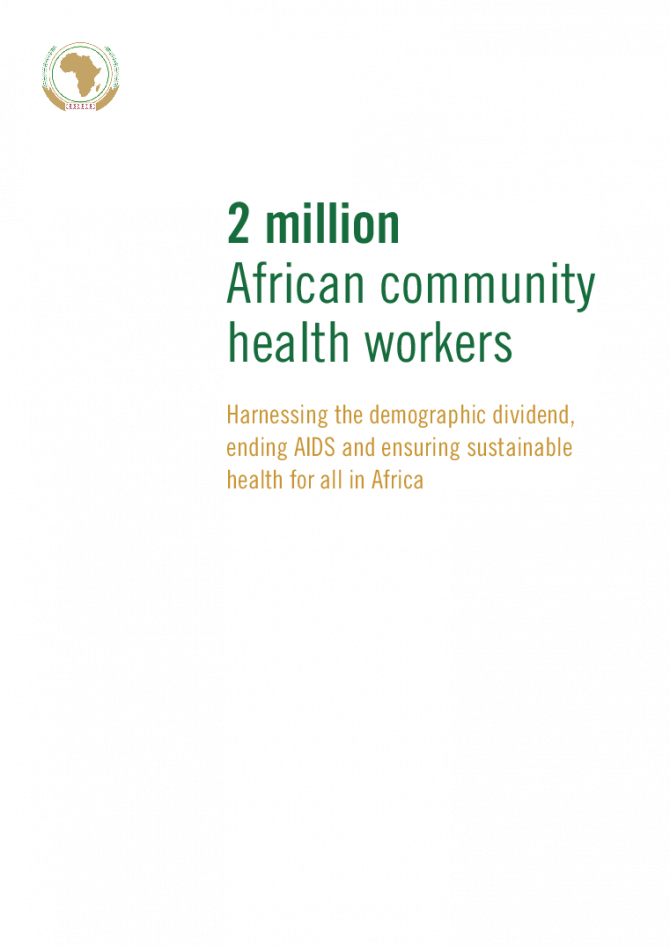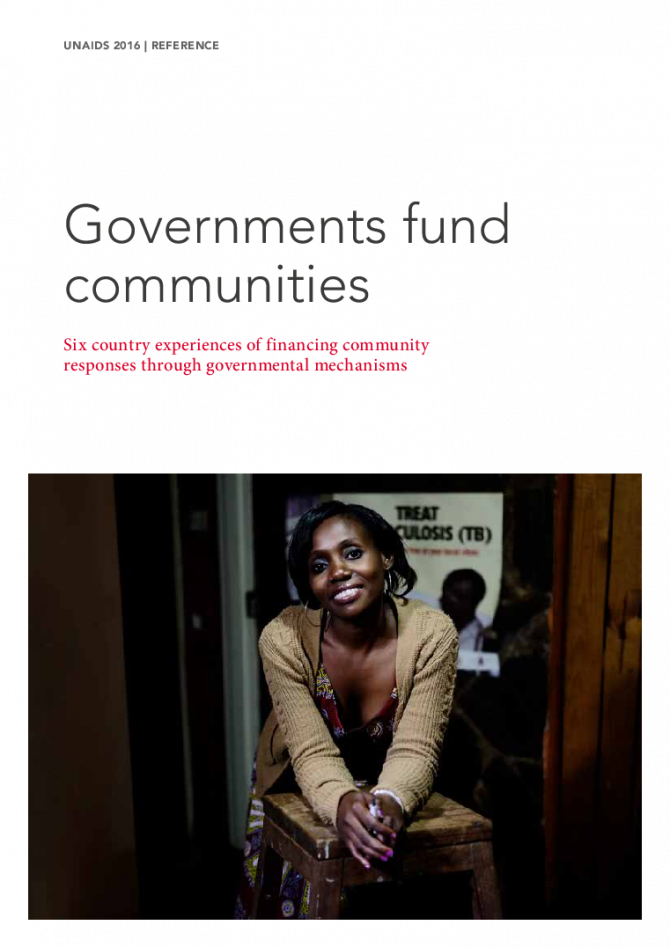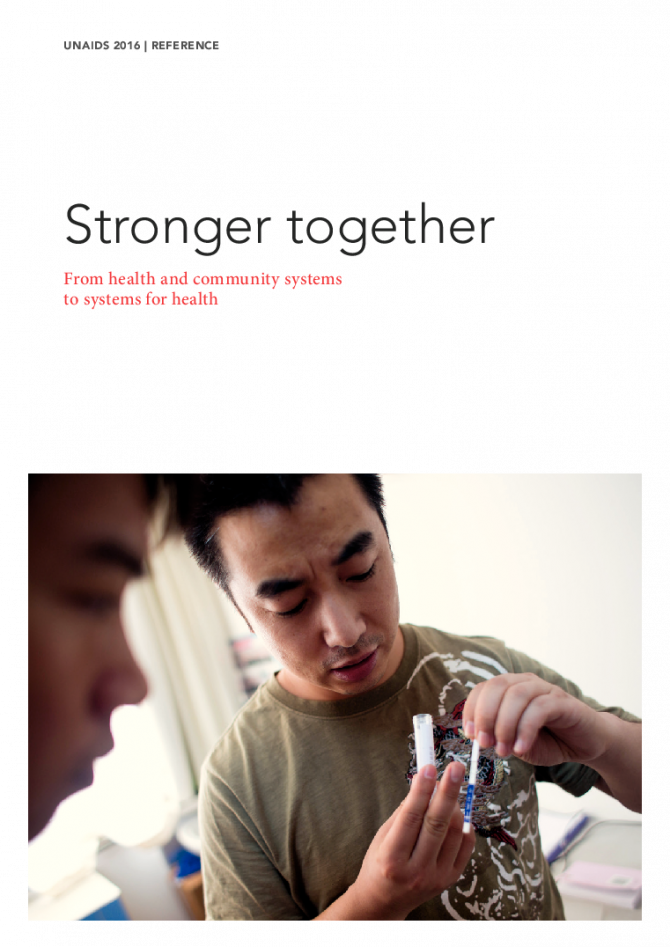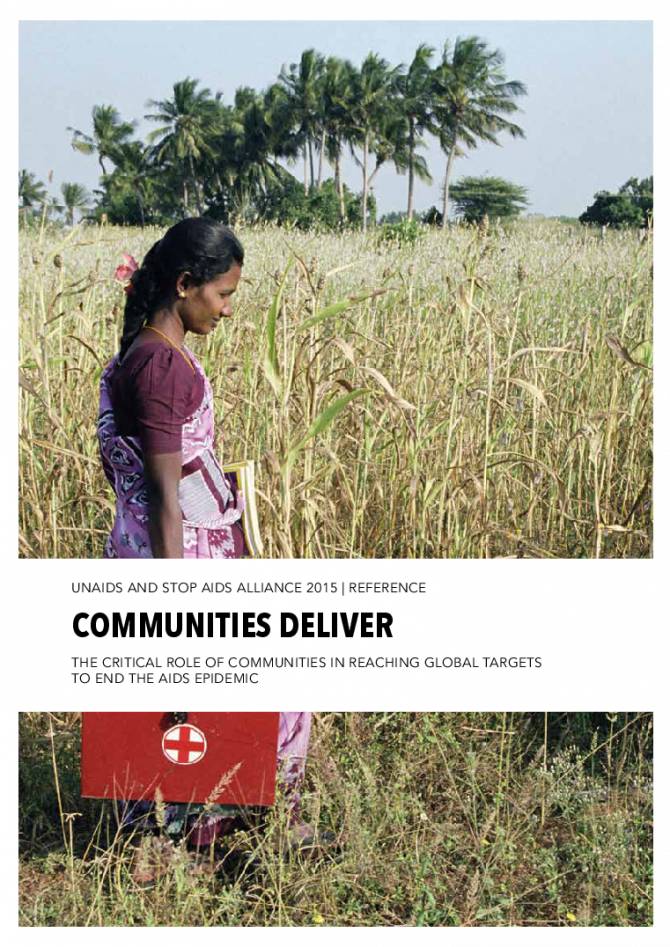


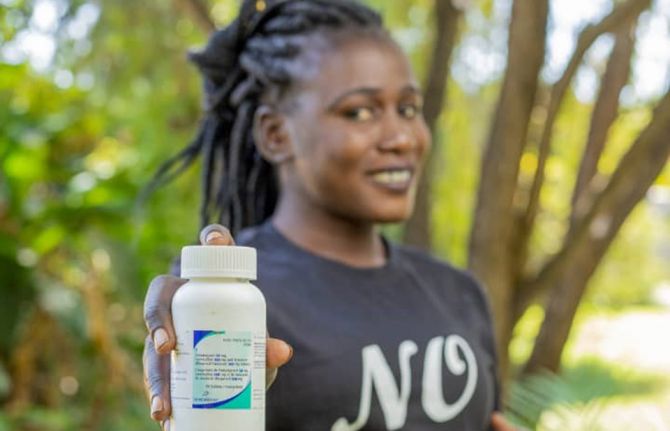
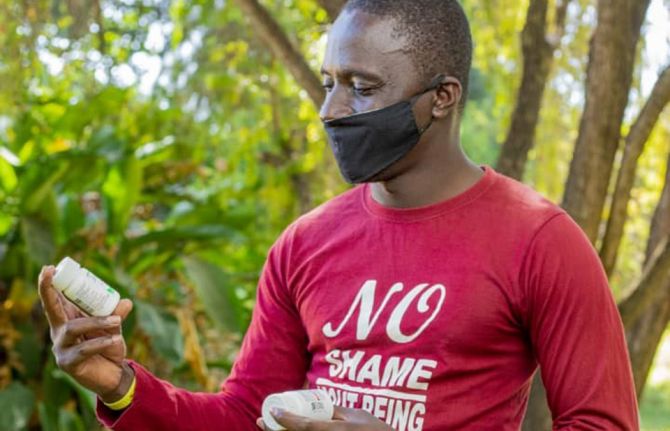
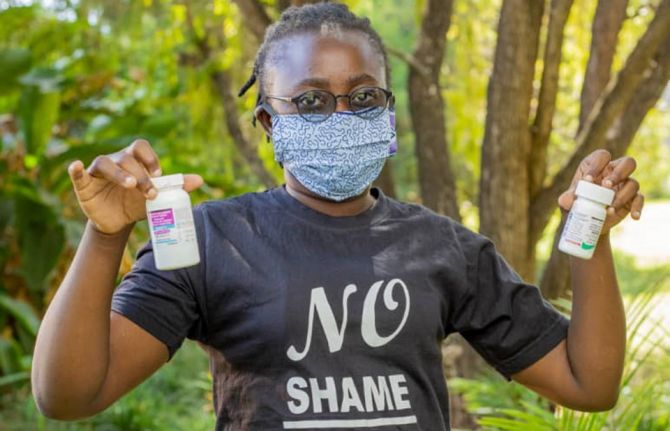
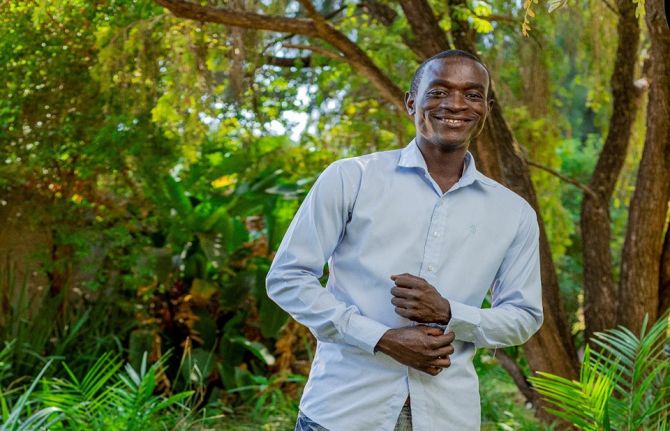
Feature Story
Phenomenal Positive Youths lead the way during COVID-19 pandemic in Zambia
23 July 2020
23 July 2020 23 July 2020Phenomenal Positive Youths are young people living positively with HIV, working towards the elimination of stigma and discrimination, adherence to HIV treatment, access to sexual and reproductive health and rights services and mental health support in Zambia.
UNAIDS has facilitated sexual and reproductive health and rights training for the Lusaka team of Phenomenal Positive Youths and plans to extend it to other districts in Zambia. The training will now include the impact of the COVID-19 outbreak on young people living with HIV, which is currently being evaluated through an impact assessment survey.
Currently, its members are part of the multisectoral risk communication community engagement pillar, as recommended by the World Health Organization’s COVID-19 Strategic Preparedness and Response Plan. Under this pillar, they are involved in creating and disseminating messages on COVID-19, busting myths, social listening and raising awareness, under the guidance of the Ministry of Health in Zambia.
UNAIDS has advocated for the implementation of multimonth dispensing of HIV treatment in Zambia. As a result, the Ministry of Health has issued a national circular to accelerate the implementation of the multimonth dispensing policy, instructing health facilities to provide three to six months of antiretroviral medicines to people living with HIV. Phenomenal Positive Youths is encouraging its members and health-care workers to follow the new guidelines.
While the policy is being implemented, Oswald Chisenga, the team leader of Phenomenal Positive Youths, said the organization has noticed that young people have experienced challenges in accessing their monthly supply of HIV treatment. “The limitation of travel during the COVID-19 outbreak, the fear of exposure to the coronavirus and the associated stigma is restricting people from visiting health-care facilities, even with the revised national guidelines,” he said. “Even messages on COVID-19 have been misinterpreted by people as meaning they should not go to a health facility, even when the need arises.”
Thus, the organization has developed an unconventional and innovative approach to ensure that its members have an ongoing supply of antiretroviral therapy, called chilimba (a commonly used local word meaning to loan or advance a colleague something). Members of the organization loan their antiretroviral medicines to one another until the person in need can obtain their supply, at which time the medication is returned.
“We help each other so that no one skips a day or does not have enough antiretroviral therapy due to different circumstances. It may be because of illness, or the person is very far from the health facility or they have no documentation to access the health facility,” said Mr Chisenga. “We communicate with one another using our social media groups. This helps us to maintain adherence, encourages openness and virtual interactions or physical ones while observing social distancing guidelines,” he added.
This is only one of the innovations that Phenomenal Positive Youth has brought into the youth-led movement in Zambia. The group was also among the first associations to speak openly about mental health among young people, especially among young key populations and young vulnerable people.
Our work
Region/country
Related

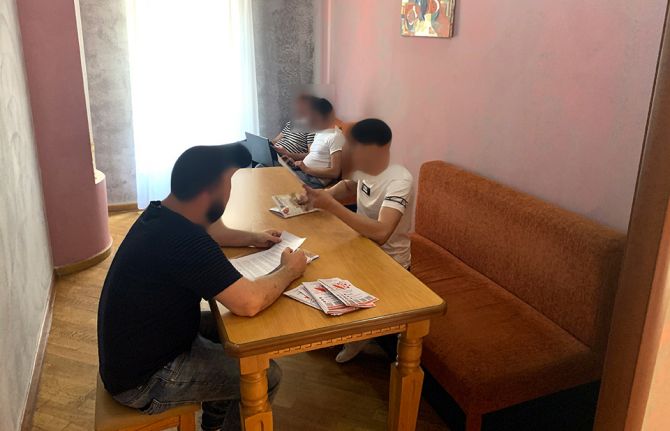
Feature Story
A safe space for key populations in Armenia
21 July 2020
21 July 2020 21 July 2020Arpi Hakobyan (not her real name), a former sex worker, lost her income after the COVID-19 pandemic hit Armenia. And then her parents threw her out of their home and took her passport. She had no place to go and no one to ask for help, until a friend advised her to contact the New Generation nongovernmental organization.
Opened by the New Generation in June 2020 in the centre of Yerevan, the capital of Armenia, the Safe Space occupies a three-storey building that gives people living with HIV, members of key populations and women who have suffered from domestic violence a safe refuge.
“When the COVID-19 pandemic began, we started receiving calls from people who, because of their belonging to key populations or because they were HIV-positive, were discriminated against, found themselves without work, without support, sometimes without a home,” said Sergey Gabrielian, the head of the organization. “It is widely believed in our society that it is these groups that spread not only HIV but also COVID-19, which is why they are expelled from work or from society. These people have nowhere to get help from—they are not on any lists of recipients of government social assistance programmes.”
The Safe Space gave Ms Hakobyan a place in the shelter. The New Generation’s lawyer and psychologist reached out to her, helped to replace her documents and found her a job.
Referrals are made to the shelter by HIV service and human rights organizations across the country. Administrators, lawyers, psychologists and volunteers are on duty 24 hours a day. For the first three days, psychologists and lawyers work with the clients to find out their circumstances, help with documentation and understand how to proceed further. The average stay in the shelter is 15 days, with the maximum being a month.
“Of course, we are not a hotel, this small programme is not designed to support people for several months—there only 37 people who can be simultaneously in the shelter. And the demand for it is enormous,” said Mr Gabrielian.
A key feature of the shelter is a special HIV services room in which people can take an HIV test and get counselling and a referral to an HIV clinic. People who use drugs and need harm reduction services are referred to a nearby organization where such services can be obtained.
Mr Gabrielian said that when it became obvious that the fight against COVID-19 could hit the HIV epidemic hard, the New Generation’s employees decided to switch to a new way of providing HIV services—online consultations, the provision of tests and prevention materials by mail and the use of outreach workers.
“We insisted that programmes for key populations should not be stopped because of the coronavirus, otherwise, with the end of one pandemic, we will see an outbreak of the AIDS pandemic,” he said.
Today, the Safe Space project is supported by the Elton John Foundation, with support also from the Swedish Government. Negotiations are under way with the Global Fund to Fight AIDS, Tuberculosis and Malaria and UNAIDS on the future of the service.
“The coronavirus made us understand what new ideas could be included in the HIV service programme. It was these special circumstances that made us move on and look for new ways to support people in times of crisis,” said Mr Gabrielian.
Our work
Region/country
Related

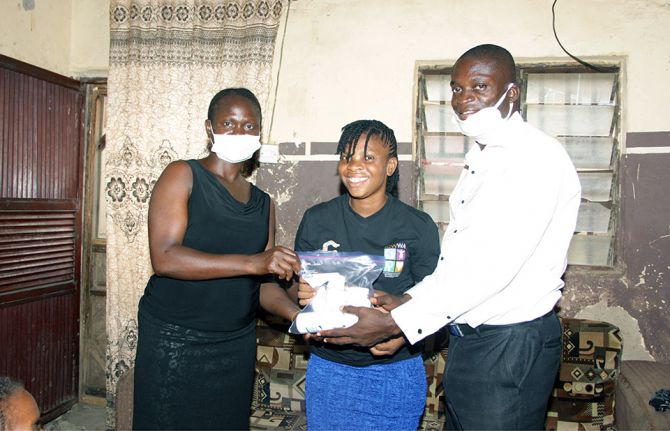
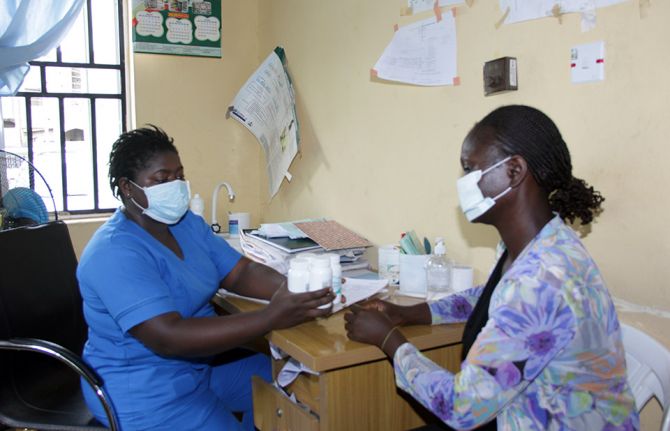
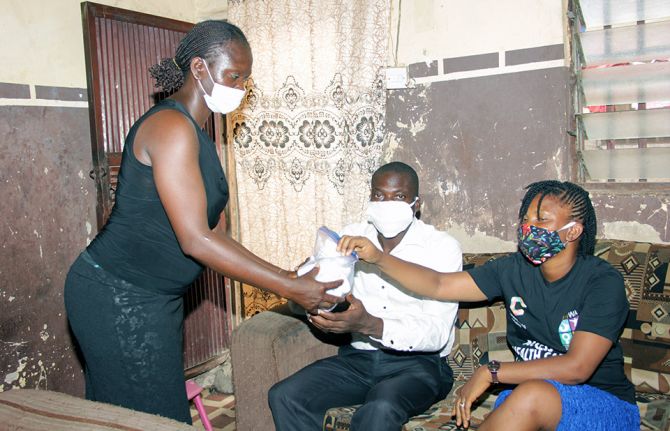
Feature Story
Delivering antiretroviral medicines to homes in Côte d’Ivoire and Nigeria
14 July 2020
14 July 2020 14 July 2020The restrictions on movement and lockdowns currently being enforced to curb the spread of the new coronavirus in both Côte d’Ivoire and Nigeria are having an impact on many people living with HIV. To help mitigate those effects, the International Community of Women Living with HIV (ICW) West Africa is partnering with health-care facilities to facilitate the home delivery of HIV and other treatments.
Key to being able to provide this service is the recruitment of community pharmacists, who collect and deliver antiretroviral therapy and other medicines to people, especially adolescent girls and young women, who can’t access their treatment themselves. An initiative of ICW and its partner, Positive Action for Treatment Access (PATA), 59 women living with HIV are now serving as community pharmacists, visiting hard to reach semi-urban and rural areas and helping to ensure that no one is left behind because of the COVID-19 crisis.
Under the arrangement, the medicines are provided by the Institute of Human Virology Nigeria, while PATA provides the logistics with support from the Open Society Initiative for West Africa (OSIWA) and ICW West Africa is responsible to the final home delivery.
“I willingly accepted to do this work because as a woman living with HIV, I know what it really means staying without antiretroviral therapy and the likeliness that people may develop drug-resistant strains, whose long-term effects could be worse than COVID-19,” said Queen Kennedy, a community pharmacist in Nigeria.
In Nigeria, community pharmacists are providing services in three COVID-19 high-burden states, Lagos, Federal Capital Territory and Oyo, covering 26 health-care facilities, while in Côte d’Ivoire community pharmacists are working in three provinces covering nine health-care facilities. In addition to their work delivering medicines, the community pharmacists are also sensitizing adolescent girls and women living with HIV on COVID-19 prevention measures, such as physical distancing, wearing face masks and regular hand washing.
“Ensuring access to quality health-care services for adolescent girls and young women and key populations living with HIV is one of our mandates. The only difference here is that we are providing these services in an emergency situation, putting at risk also our own health,” said Reginald Assumpta Ngozika, the Regional Director for ICW West Africa.
Through this partnership, ICW West Africa is also facilitating access to antiretroviral medicines for two foreign women living with HIV who are stranded in Nigeria because of border closures. Since the two women ran out of their medicines, they are being assisted by ICW community pharmacists, who collect and deliver their treatment in Lagos and Rivers State.
“Thank you ICW West Africa for keeping me on my medicines during this COVID-19 lockdown in Nigeria,” said one of the beneficiaries.
Our work
Region/country
Documents
Rights in the time of COVID-19 — Lessons from HIV for an effective, community-led response
20 March 2020
Right now, we are facing an unpredictable and highly dynamic situation as a global community. However, as we have seen from the solidarity, support and power of communities in the HIV epidemic and already in communities responding to the COVID-19 pandemic, the response must not be fear and stigma. We need to build a culture of solidarity, trust and kindness. Our response to COVID-19 must be grounded in the realities of people’s lives and focused on eliminating the barriers people face in being able to protect themselves and their communities. Empowerment and guidance, rather than restrictions, can ensure that people can act without fear of losing their livelihood, sufficient food being on the table and the respect of their community. Ultimately it will give us a more effective, humane and sustainable response to the epidemic. This document is also available in Arabic.
Documents
Power to the people
04 December 2019
A new report by UNAIDS, Power to the people, released ahead of World AIDS Day, shows that where people and communities living with and affected by HIV are engaged in decision-making and HIV service delivery, new infections decline and more people living with HIV gain access to treatment. When people have the power to choose, to know, to thrive, to demand and to work together, lives are saved, injustices are prevented and dignity is restored.
Documents
World AIDS Day 2019 — Communities make the difference
05 November 2019
Communities make an invaluable contribution to the AIDS response. Communities of people living with HIV, of key populations—gay men and other men who have sex with men, people who use drugs, sex workers, transgender people and prisoners—and of women and young people lead and support the delivery of HIV services, defend human rights, support their peers. Communities are the lifeblood of an effective AIDS response and an important pillar of support. World AIDS Day 2019 theme — Communities make the difference
Documents
Stronger together: From health and community systems to systems for health
04 April 2016
This report is intended as a guide to governments, in particular ministers of health and finance, in making decisions on the integration of community responses to HIV in national AIDS plans, including budget allocations. Resilient systems for health that integrate community responses will be key to ending the AIDS epidemic by 2030.
Documents
The critical role of communities in reaching global targets to end the AIDS epidemic
13 August 2015
This report draws on multiple sources to document the many ways in which communities are advancing the response to AIDS, and the evidence for the effectiveness of these responses. Core areas of community-based activities include advocacy, service provision, community-based research and financing; each of these areas is illustrated by examples of community-based actions.



